If the below image could be described as “The Right Combination”, what ad could be called The Wrong Combination?
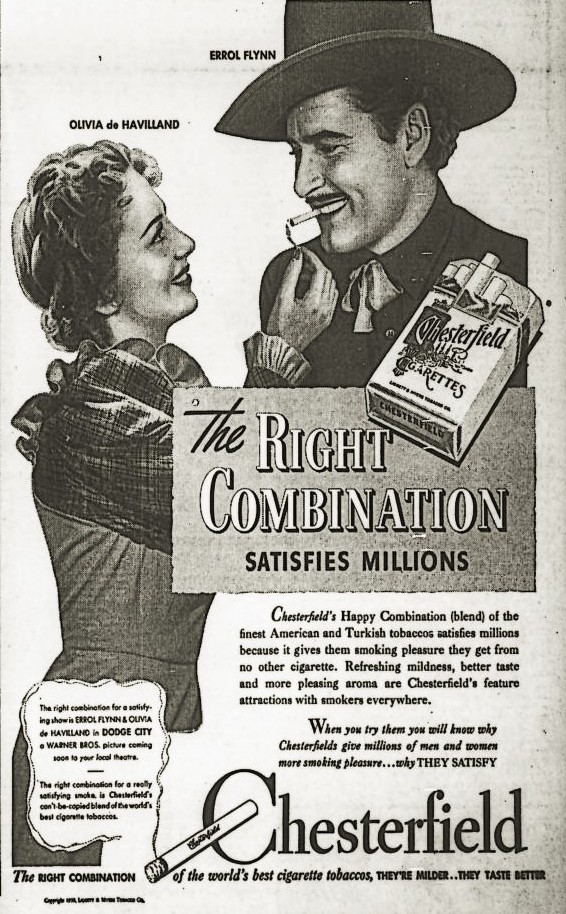
Clues:
Errol and
Smokin’ Like Flynn
In an ad published that same year
Involving a film very different than Dodge City
— Tim
If the below image could be described as “The Right Combination”, what ad could be called The Wrong Combination?

Clues:
Errol and
Smokin’ Like Flynn
In an ad published that same year
Involving a film very different than Dodge City
— Tim
During April of 1939, newspapers throughout the U.S. published a Chesterfield Cigarettes ad featuring Errol and Olivia in their Dodge City costumes. The film’s famous world premier was on April 1, 1939. The ads below were published on April 10 in the Yuma Sun, and April 28 in the Detroit Jewish News.
The Detroit Jewish Chronicle – April 28, 1939
…
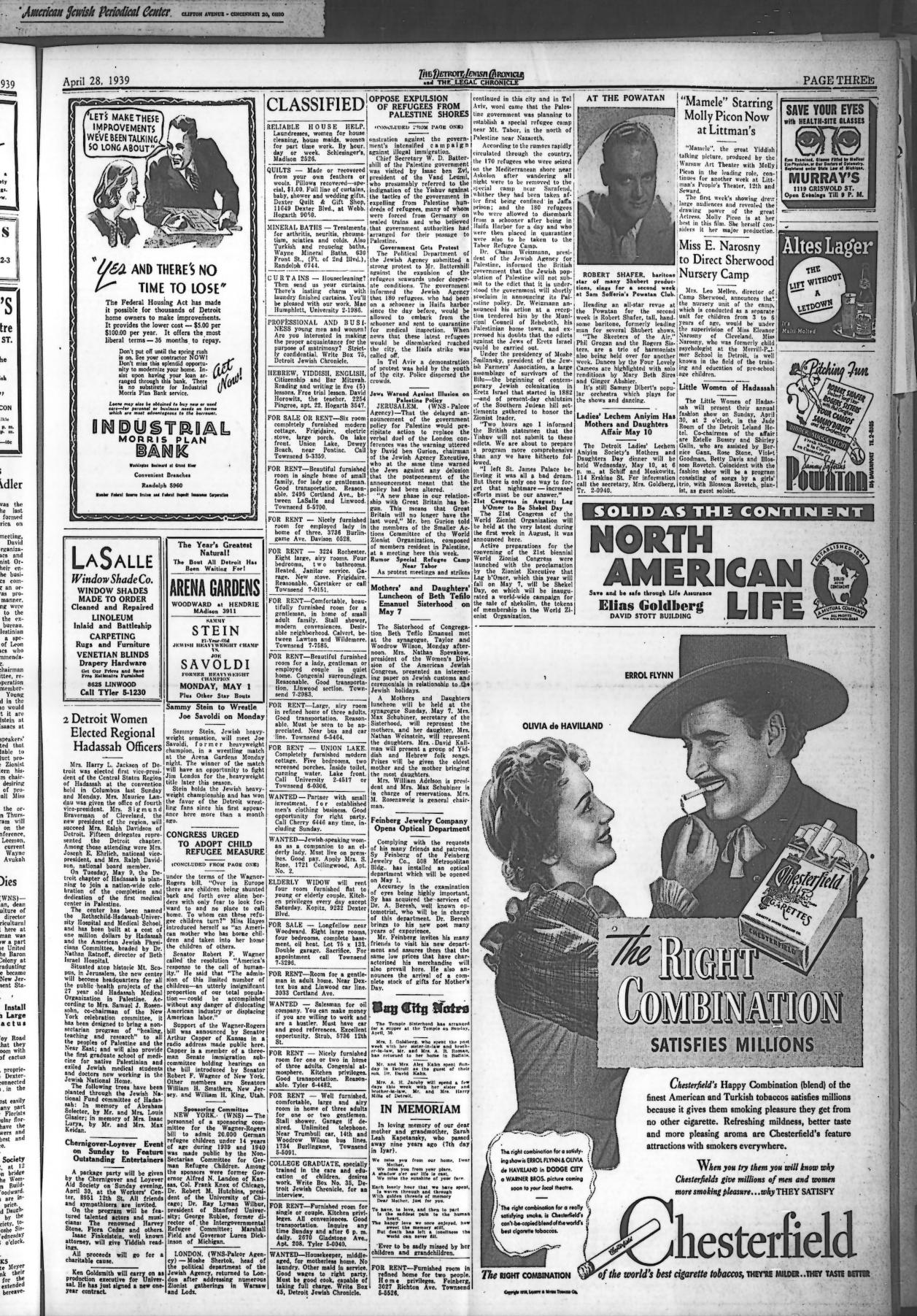
— Tim
April 8, 1943
Evening Herald Express
ERROL FLYNN FINAL DIVORCE DECREE
Errol Flynn and Lili Damita went their separate ways today.
The actress received her final divorce decree, ending another episode in Flynn’s courtroom capers. Superior Judge William S. Baird entered the decree, which followed an interlocutory award to Miss Damita on April 1, 1942.
…
SUPPORTING PLAYERS
Ann Sheridan:
During filming of Edge of Darkness, throughout the fall of ’42 and into ’43, it was increasingly rumored and reported that Errol and Annie were romantically involved – rumors and reports that likely incensed Tiger ‘Lil.
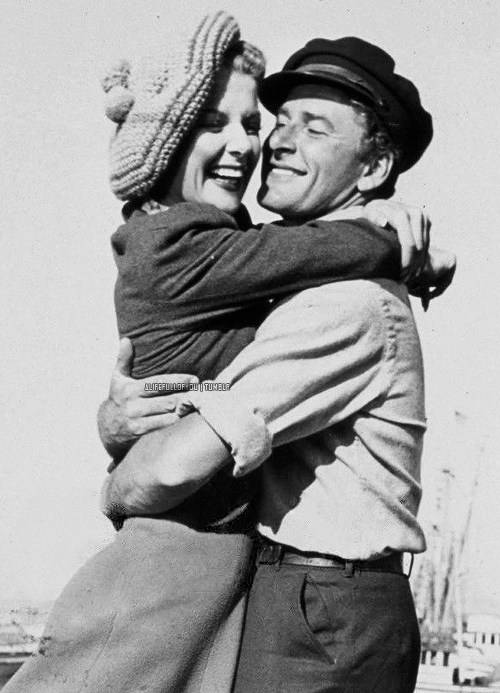
Judge William S. Baird:
Judge William S. Baird spent three decades on the Superior Court, retiring Feb. 1, 1952. Some of the lighter moments got into print. Among his cases was one in which actress Gail Patrick (later “Perry Mason” executive producer Gail Patrick Jackson) was suing for divorce from Robert H. Cobb, owner of the Brown Derby restaurants. United Press reported on Nov. 14, 1940 that Patrick testified that Cobb’s disposition “humiliated me, embarrassed me, and made me nervous and ill.” UP said Baird interjected: “Well, you must have known his disposition.” She nodded in agreement and Baird asked: “Well, then, why did you marry him?” The actress responded: “We were both Irish.”
A 1942 wire service story said: “Superior Judge William S. Baird knows women as well as law. “A lawyer asked Charles K. Matthay yesterday if his actress-wife Virginia Hall felt she had been properly clothed. “No woman,” observed the judge, ‘feels she is properly clothed.’”
A 1943 report from United Press began: “Superior Court Judge William S. Baird is believed to be the only judge who ever awarded alimony to a horse.” He approved an agreement under which the husband made monthly payments for the upkeep of two horses.
Here is a still photo of a still used as evidence in one of Judge Baird’s many newsworthy cases. This is one of the first cases following a new law that made it a felony to have a still. The still was too large to present as evidence in court, so it was exhibited to Judge Baird outside the LA Hall of Justice on July 15, 1927.
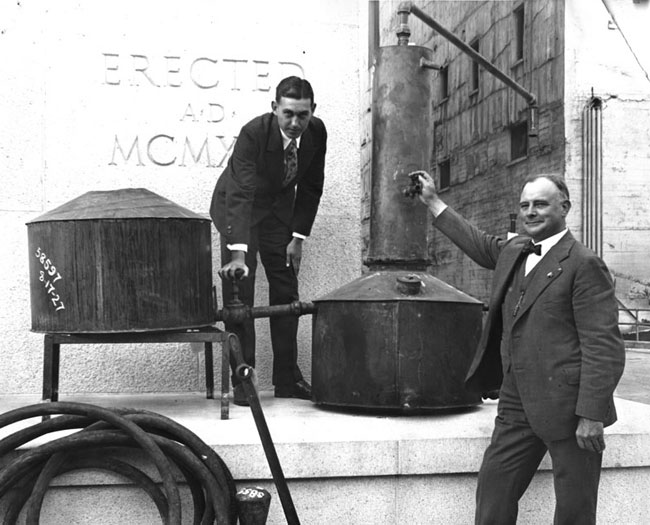
— Tim
April 8, 1935
Jimmy Starr
LA Evening Herald Express
Errol Flynn, the new RAVE on the Warner lot, is slated for an important role in Captain Blood starring Robert Donat.
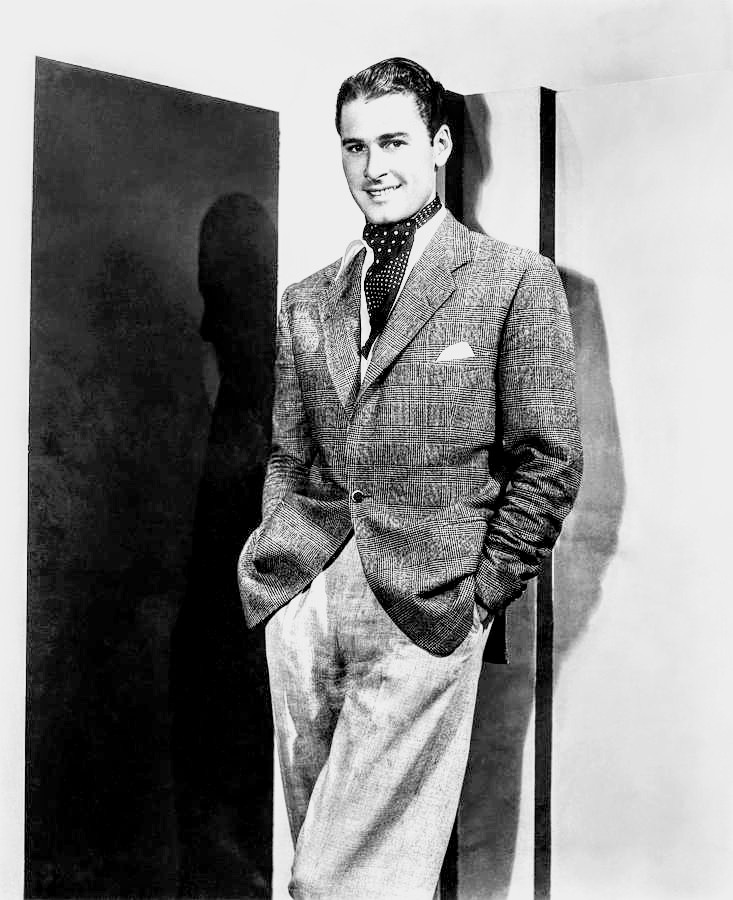
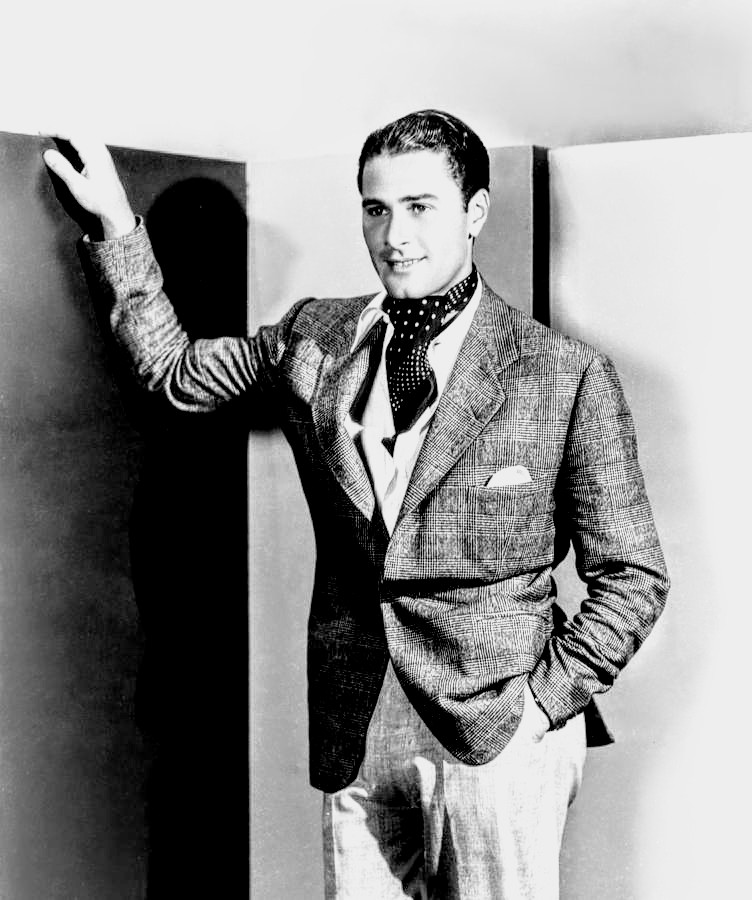
— Tim
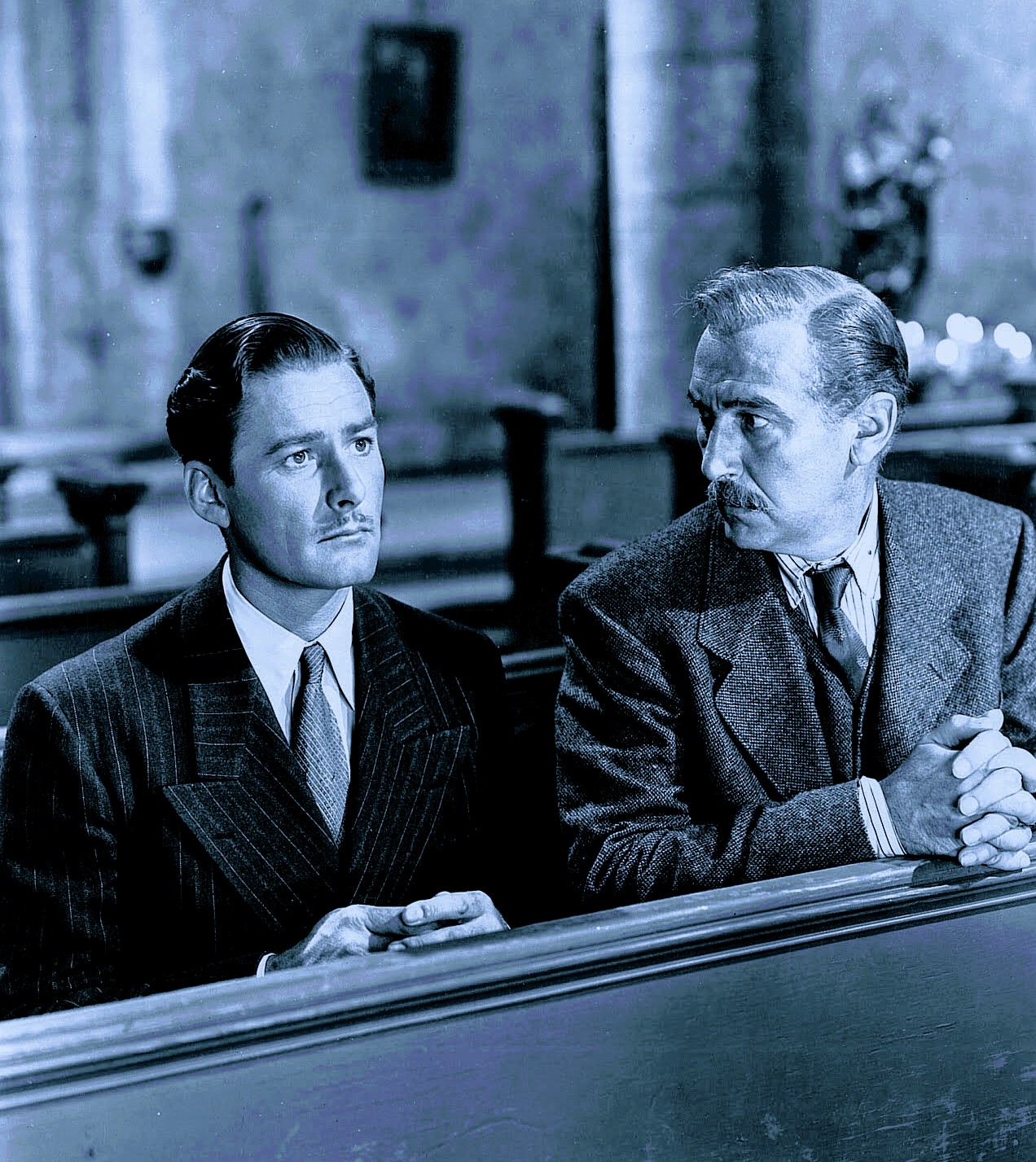
April 8, 1944
Bosley Crowther
New York Times
An uncommon lot of “criminals” seem to be doing noble things for France these days—at least, in motion pictures. There was Humphrey Bogart in “Passage to Marseille” and Jean Gabin in “The Impostor.” Now it is Errol Flynn who is abandoning crime for patriotism in “Uncertain Glory,” at the Strand.
In this rather hopped-up Warner picture, which takes place in occupied France, Mr. Flynn plays a man condemned for murder who, in hopes of getting away, offers to surrender himself to the Nazis as a particularly desired saboteur. The offer is grudgingly accepted by Paul Lukas of the French police, who suspects Mr. Flynn’s intentions and keeps a careful watch on him. But when the chance does come for Earnest Erroll to take it on the lam, he does the noble thing bravely. You see, he had meanwhile met a girl. (It is always, or almost always, a girl who inspires Mr. Flynn.)
You may note that our references to characters have been by their own familiar names. It is because this picture is plainly an actor’s vehicle. An air of French actuality is entirely foreign to it. The whole thing is artificial, in structure, mood and atmosphere. But if you accept it on that basis — as a purely theatrical show — it does have some compensations in the entertainment line. The sparring of Mr. Lukas and Mr. Flynn is amusing throughout, mainly because of the performance of Mr. Lukas as an anxious plain-clothes cop. (Mr. Flynn is his boyish self, as usual, and quite remote from a faithful criminal type.) Director Raoul Walsh has keyed it to a subdued, suspenseful pace which is suggestive of explosive tension, even if it never explodes. And Jean Sullivan, who bears a close resemblance to Teresa Wright, is a nice new face in it. However, we casually wonder what values one can hold to when one sees Errol Flynn as a murderous criminal symbolizing the spirit of France.
UNCERTAIN GLORY; screen play by Laszlo Vadnay and Max Brand; from an original story by Joe May and Mr. Vadnay; directed by Raoul Walsh; produced by Robert Buckner for Warner Brothers. At the Strand.
A version of this article appears in print on April 8, 1944 in the National edition with the headline: Errol Flynn Assists the French Underground in Strand Film, ‘Uncertain Glory’
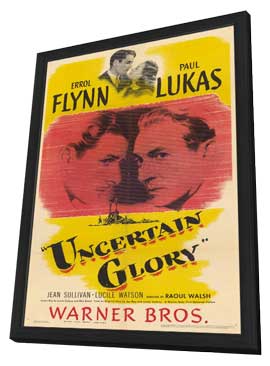
— Tim
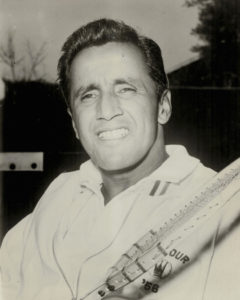
Dear fellow Flynn fans,
Francisco Olegario Segura called “Pancho” by friends and pros, had what many labeled the best forehand ever in the history of tennis.
Former World No. 1 Player Ellsworth Vines remembered it all too well: “(His) Two-handed forehand is most outstanding stroke in game’s history; unbeatable unless opponent could avoid it.”
Pancho, the eldest of 7-10 children (reports vary) was born in Ecuador on a raft on the way to the hospital on June 20th 1921.
Not only did he share Errol`s birthday, but also crossed rackets with him in later years in Spain.
“I used to play at midnight in Madrid for 1000 dollars. Errol Flynn would send a chauffeur to pick me up.”
After an exceptional career on the lawns all around the world, considering he had suffered from rickets and malaria from an early age, he settled in the US and taught many flynntimos his most deadly shot at the Beverly Hills Tennis Club.
Ava Gardner, Kirk Douglas and Shelley Winters, just to name a few, honed their tennis court skills with this great character known for his humor, relentnessness and longevity.
He retired at 49 at the US open and died at 96 with fond memories of mentoring Jimmy Connors and to a lesser extent the son of Dean Martin to felt ball stardom.
Enjoy,
— shangheinz
…

“On April 6, 1970, the war photographer Sean Flynn — the brave, charismatic son of Errol Flynn — rode his motorcycle into a roadblock, was captured by the Viet Cong and vanished forever into the jungle.” – Quoting the South Florida Sun Sentinel’s June 9, 2002, review of Jeffrey Meyers’ Inherited Risk:
See U.S. Defense of Defense POW/MIA Accounting Agency Profile for Sean: dpaa.secure.force.com…
…
Here are Five Videos, One for Each Decade since April 6, 1970. God bless, Sean.
…
…
…
…
…
…
…
…
…
— Tim